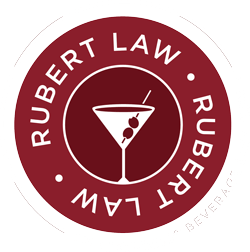In Florida, the Division of Alcoholic Beverages & Tobacco conducts an annual Quota Alcoholic Beverage License Drawing, a process governed by state law and administrative rules. This lottery issues new liquor licenses to businesses in counties with an increased...
Alcoholic Beverage Law
Limited Time Left To Apply For 2023 Florida Liquor License Lottery
Every year, Florida holds a “quota” lottery where the state awards a limited number of liquor licenses to lucky applicants. While the drawing for the 2023 lottery will only occur in 2024, the application period is currently active. Applicants have until 5:00 p.m. on...
The 2022 Liquor License Lottery Drawing Is Closing In
Florida alcoholic beverage licenses can be difficult for an individual or business to acquire. That is why Florida’s quota liquor license lottery draws thousands of applicants every year. Last year, Florida offered a modest 35 alcoholic beverage licenses available in...
TTB Issues Procedure on Transfer of Beer Between Breweries Not of the Same Ownership
This week, we published TTB Procedure 2023-1 Transfer of Beer Between Breweries Not of the Same Ownership. The purpose of this procedure is to provide brewers with guidance regarding the transfer of beer, without payment of tax, from one brewery to another brewery not...
New DABT rule is causing some confusion
The Florida Division of Alcoholic Beverages and Tobacco (DABT) recently revised its administrative rule regarding what items can be sold in restaurants (Rule 61A-3.055 Items Customarily Sold in a Restaurant). The rule was revised after a challenge to the rule filed...
Will a liquor license transfer after I buy a bar in Florida?
Opening a bar can be a good investment, especially in Florida, where the state offers a profitable environment for leisure and hospitality businesses. But if you’re lucky enough to find a bar for sale, you may wonder if the license will be automatically transferred...
Why would a bar lose its license?
It’s very important to have all the right licensing when starting a bar, a brewery or something of this nature. Like other drinking establishments, the proper regulations must be followed. The license has to be obtained before operation begins on the premises....
Do you need a declaratory statement?
The alcohol beverage industry is one of the most tightly regulated areas you can go into, and trying to understand all the rules can be daunting. The bad news is that it can still be challenging to understand how particular laws apply to you even after you’ve been in...
Quota licenses: What are they and how can you get one?
If you’re interested in starting a business in the hospitality industry, or are looking to branch out into serving alcohol in an establishment you already have, you are likely at the stage of researching how to obtain a Florida quota liquor license. As this is a...
Your kombucha operation could violate advertising regulations
There are many laws licensing the production of alcoholic beverages. Most people think of beer, wine and distilled spirits, but kombucha can also fall into the category of regulated, alcohol-containing beverages. Many businesses that produce kombucha specifically...
